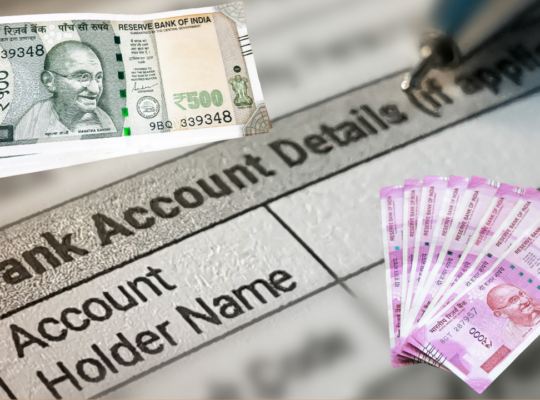
As a disclaimer, I do not want any untoward incident to happen in any person’s life, but we also need to be a bit practical and be prepared for any eventualities in our life (and do not consider me as a negative person for writing this blog-post). The Covid pandemic inflicted a devastating blow to many Indian families. It took the lives of several of a family’s sole breadwinners, leaving the family befuddled and saddened.
The difficulties that such a family faces soon following their lone breadwinner’s death emphasises the need of life insurance plans. People usually purchase these plans to guarantee that their loved ones do not experience financial difficulties in the tragic event of their death.
Even though insurance plans can assist you in easing your financial troubles, beneficiaries of insurance policies confront a number of additional challenges, including submitting claims. More significantly, many people are unclear what to do with the money once they have been deposited into their bank accounts. For one thing, bank relationship managers urge them to put that money in their bank’s recommended investment instruments. Then there are family and friends who offer their own ideas. Beneficiaries of claim settlements who are not financially knowledgeable fail to invest or put their money to good use.

You must build a customized investment portfolio with several asset types. You must also have some money set aside in case of a medical emergency in the family. This reserve fund should be predominantly put in bank fixed deposits and debt mutual funds. A percentage of the corpus must be placed in mutual funds that are a mix of equity and debt.
Equity investment of insurance proceeds is critical because it will provide yields that can outperform inflation while still appreciating your capital and hence generating wealth for you.
Let family know:
Purchasing life insurance on its own is insufficient. Policyholders must keep their families updated on the specifics of all such policies in order for the family to handle the corpus effectively later on. In India, men are conditioned to keep their financial affairs private from their families. The family will be unaware of any insurance policies, loans, or other responsibilities. But it is usually preferable to inform your family about every aspect of your insurance policies and finances.
Policyholders must also guard against creditors claiming the insurance sum. The Married Women Property (MWP) Act comes in handy here. When a man purchases insurance under the MWP Act, he can make sure that the death benefit that he receives from the insurance coverage is used only to safeguard his wife and children. When the MWP addendum is included to the insurance, neither creditors nor relatives may lay a claim on it. Self-employed persons, in particular, who may have taken out company loans, should use the MWP Act so that their death payout goes to the family rather than being used to settle debts.
Insurance firms also provide tailored payout choices. They can, for example, give a monthly payment or a lump sum payout. Although a monthly payment appears to be handy, financial experts do not advocate it. Only choose monthly payments if your family is entirely incapable of managing a lump sum on its own.
Financial planning advise:
Following the death of a breadwinner in a family, the remaining family members seek financial guidance from their relatives and friends. However, this may not be in their overall best interests. Most families seek advice from a trustworthy family member who may be just as clueless as you are.

A certified financial planner can provide unbiased expert guidance. However, there are many people in the sector who may have ulterior motives of getting higher fees or commissions. Avoid those who promote things but refuse to address your specific needs. Don’t commit to things that need long-term financial commitments or to things that impose penalties you for dropping out along the way, irrespective of the dire circumstances you are in.
If you receive the insurance money, what are some Do’s and Don’ts that you can follow:
Do’s:
- Invest in a short-term FD and make certain that the funds are invested in a well-known nationalized bank or financial institution.
- Pay off any financial obligations that you may have.
- Purchase health and life insurance policies.
- Put your retirement ahead of your child’s higher education or marriage.
Don’ts:
- Refrain from seeking advice from close friends or relatives, as they may be just as clueless as you are.
- Avoid bank relationship managers since they will constantly want to sell you high-commission products and services.
- Stay away from insurance-linked investment products like ULIPs.
- Stay away from random or risky investments without long-term goal-based financial planning for your future.





